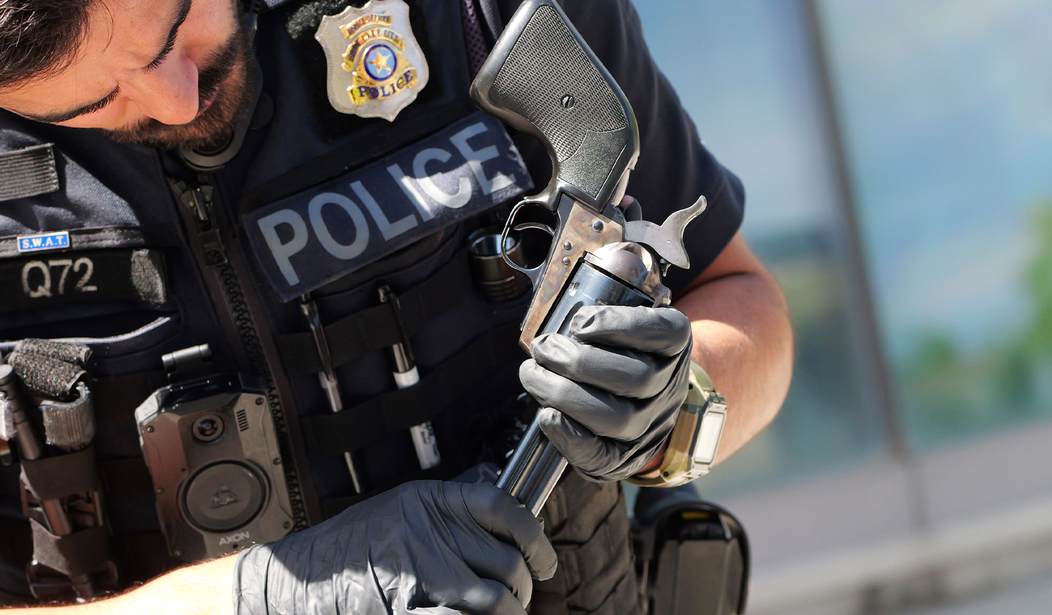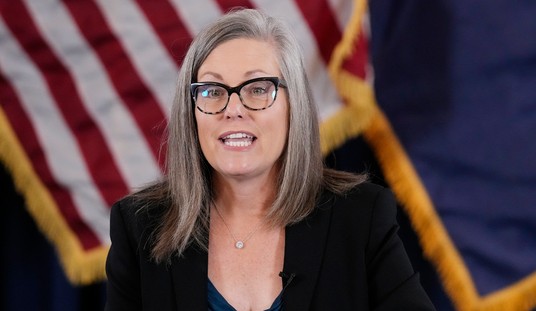Rev. Michael Murphy’s heart is clearly in the right place, but that doesn’t mean that the upcoming “buyback” he’s hosting at the Edmondson Village Shopping Center in West Baltimore is going to have the impact he imagines.
Writing at the Baltimore Sun, Rev. Murphy contends that “buybacks” do work, despite all evidence to the contrary.
Most everyone you talk to has something to say about gun buybacks, and I’ve heard a lot of opinions lately on my quest for support to pay people for their weapons, so we can get Glocks, sawed-off shotguns and semi-automatics off the streets and out of homes.Do gun buybacks work? While I am not a researcher or criminologist, I tell everyone who asks me on my shoe-leather fundraising campaign: Yes. I’ve been a priest for 31 years and serve in the same Southwest Baltimore parish where I grew up, and what I know for sure is that the gun buyback and resource fair I’m planning for Aug. 5 really is about building a coalition for peace and channeling hope to our neighbors.
On the ground during the event, we will have information and resources from an impressive coalition, including My Brother’s Keeper, a comprehensive community-based program of Catholic Charities in West Baltimore. There, people can find a wide-range of support from youth services to workforce development. The Ascension Saint Agnes Mobile Health Clinic will be on-site with community outreach services. On hand will also be LifeBridge Health’s Center for Hope, which supports survivors of violence and abuse across their lifespan. We will have remarks by dignitaries and interfaith leaders and 500 freshly made meals to give away provided by the Franciscan Center and the West Baltimore Renaissance Foundation.To date, we’ve raised tens of thousands of dollars from parishes across the Archdiocese of Baltimore, Catholic Charities and the generosity of many individual donors. The money we don’t use toward the buyback will go to the Archdiocese’s Grief Ministry that works with the police department’s homicide survivor advocates to provide groceries, household goods and comfort items to families in the immediate aftermath of a loved one’s murder.
The most rigorous studies of gun buyback programs have found little empirical evidence to suggest that they reduce shootings, homicides, or suicides by any significant degree in either the short- or long-term.
This isn’t surprising, experts say. “Even under the assumption of optimal implementation, only a tiny fraction of guns in a given community are going to be turned into gun buyback programs,” Charbonneau said. “It’s unlikely that research using standard statistical methods will be able to identify the causal impact of buybacks on firearm violence.”
An analysis by The Trace earlier this year found that more than 16 million guns were produced for the U.S. market in 2020 alone, and somewhere between 350 and 465 million guns may be in circulation nationwide. Meanwhile, even the most successful gun buyback events collect only a few hundred guns at a time. For example, over a nearly two-decade period, New York City’s gun buyback initiative collected just 10,000 firearms.
“Turning in small numbers of firearms does not change the fact that they are readily available in many places,” Charbonneau said. “And so you still have a flow of firearms through a community. If you think of it as a supply-side intervention, the supply is barely affected.”
There are other shortcomings, too. Studies have found that buybacks often collect inoperable guns, guns that don’t fit the characteristics of typical crime guns, or guns from people who are unlikely to be at risk of firearm violence. Several studies have found that people who participate in buybacks tend to be older, less likely to be involved in gun violence, and not residents of the city holding the buyback. And many people who turn over one gun still keep other guns at home.
I have no doubt that Rev. Murphy is sincere in his belief that next weekend’s event will be life-saving and life-changing for those involved, but that truly would be a miracle given the dearth of evidence of the effectiveness of “buyback” programs. Faith may be able to move mountains, but “buybacks” can’t solve Baltimore’s crime problem any more than Maryland’s restrictive gun control regime has been able to quell the violence in the beleaguered city.









Join the conversation as a VIP Member